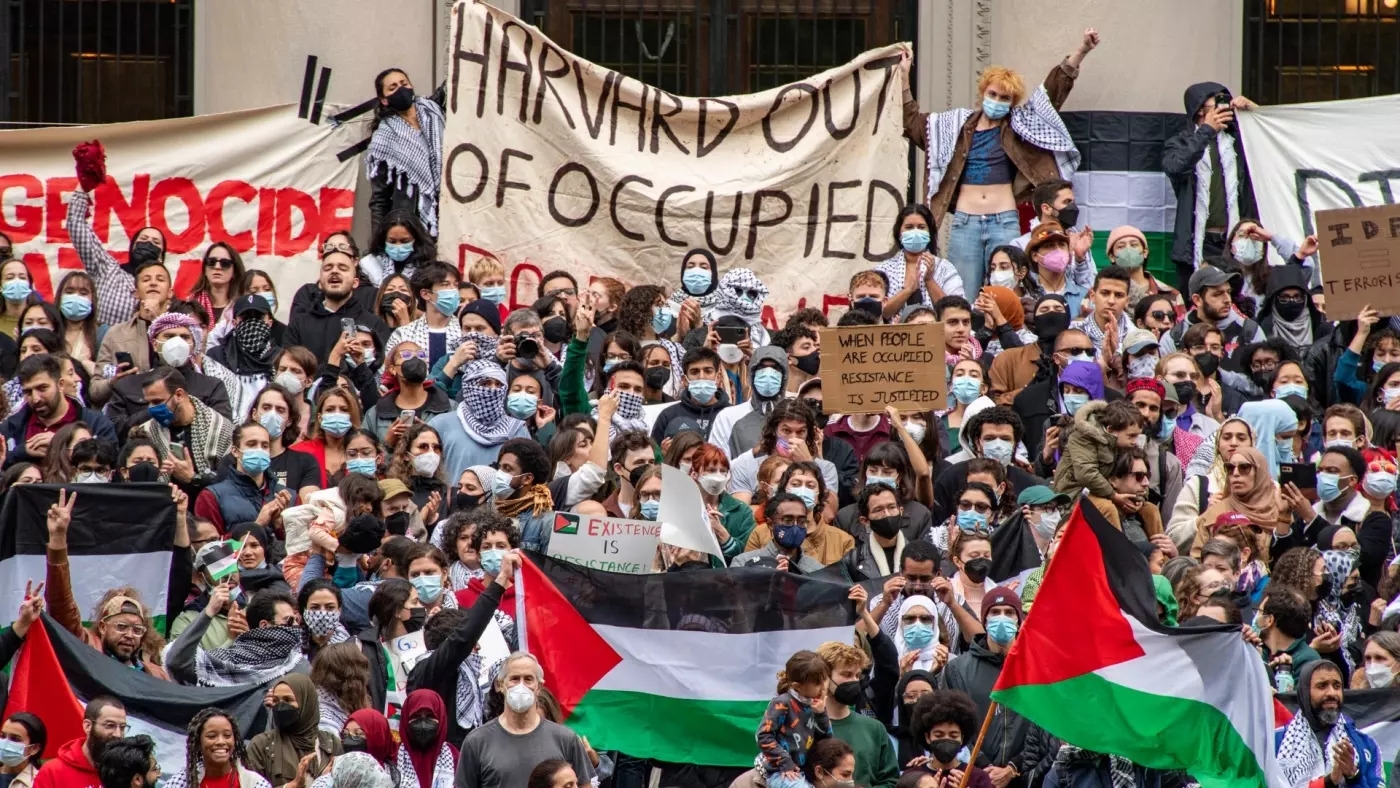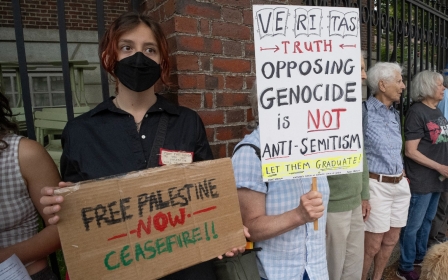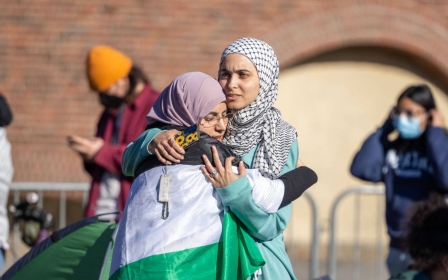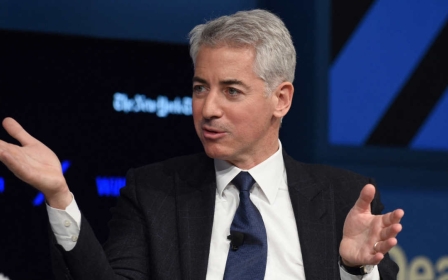Harvard University lifts suspensions of pro-Palestine students after faculty criticism

Harvard University has lifted the suspensions of five students for participating in a pro-Palestine encampment earlier this year after campus-wide pressure, student activists have said.
Students said the university had contacted them on Tuesday and informed them that their suspensions had been downgraded to probations. Dozens of other students who were initially placed on probation also had probation periods shortened, the students said.
Over 60 students had been slapped with disciplinary charges for participating in the 20-day encampment in Harvard Yard in April and May, in which Harvard students joined thousands of students from around the world, calling on their universities to disclose and divest from companies involved in Israel's occupation and ongoing onslaught.
In a statement released on Tuesday night local time by the Harvard Out of Occupied Palestine Coalition (HOOP), the group behind the encampment, they said the decision had come in part as a result of consistent pressure from the faculty council, the top faculty committee at Harvard’s faculty of arts and sciences.
New MEE newsletter: Jerusalem Dispatch
Sign up to get the latest insights and analysis on Israel-Palestine, alongside Turkey Unpacked and other MEE newsletters
“This reversal speaks to the power of our movement - both on our campus and worldwide. Between the over 1,000 Commencement attendees who walked out in solidarity with their sanctioned peers, the 45+ College organisations that took a stand against repression, and the hundreds of faculty members who amplified these calls, we pushed the administration to walk back their unprecedented sanctions,” the statement read.
“The historic mobilization for Palestine in the US and across the globe continue to make extreme repression against pro-Palestinian organizers untenable. This is the power of showing up for one another in our collective struggle.”
The news of the lifting of the suspensions comes as Jennifer O’Connor, a current vice president of technology and information law and policy at the defence firm, Northrop Grumman, was announced as the institution's newest vice president and general counsel. O’Connor, a Harvard alum, also served as former general counsel for the US Department of Defence.
According to The Harvard Gazette, O’Connor “will lead the Office of General Counsel, which provides support to the University’s Schools, divisions, and departments on an extensive array of legal matters”.
When MEE asked Harvard University for comment on the lifting of the student suspensions, its press office said that they do not comment on individual disciplinary cases.
‘Bare minimum’
In their statement on Tuesday, HOOP described Harvard’s decision to roll back the suspensions as the "bare minimum".
“As many of us prepare to return to the university, we must remember that there are no universities left in Gaza.”
“Harvard continues to bankroll this annihilation of Palestinian life through its financial and political investments in genocide,” HOOP’s Instagram statement reads. “Our movement for divestment must only grow stronger,” the statement added.
Though disciplined students will be allowed to return to campus in the fall - with the harshest sanction now being one semester of probation - Harvard has yet to confer degrees upon the thirteen seniors who were prevented from graduating in May.
Harvard University, like many other institutions of higher learning in the US, has been a key site of struggle for pro-Palestinian protesters since Israel's war on Gaza began.
Pro-Israel groups and billionaire donors have repeatedly conflated criticism of Israel with antisemitism.
Pro-Palestine student protesters at Harvard have consistently argued that Palestine remains the exception to free speech on the campus.
Middle East Eye delivers independent and unrivalled coverage and analysis of the Middle East, North Africa and beyond. To learn more about republishing this content and the associated fees, please fill out this form. More about MEE can be found here.




